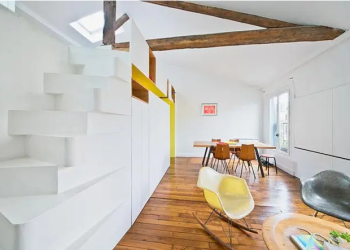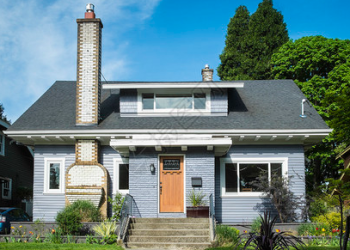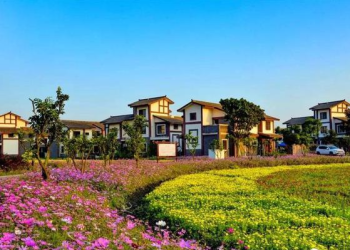Introduction
Urban gardening has become increasingly popular as more people seek to reconnect with nature and grow their own food in urban environments. In this article, we’ll explore strategies for maximizing green space in small yards and balconies, allowing urban dwellers to enjoy the benefits of gardening even in limited spaces.
Assessing Your Space
Before diving into urban gardening, it’s essential to assess the available space you have for gardening. Whether you have a small yard, balcony, or even just a windowsill, evaluating your space will help you identify challenges and opportunities for gardening in an urban environment.
Vertical Gardening Solutions
One of the most effective ways to maximize green space in small yards and balconies is through vertical gardening. By utilizing vertical space for planting, you can grow a wide variety of plants without taking up valuable floor space. Vertical gardening structures such as trellises, vertical planters, and hanging baskets allow you to create lush, green walls of foliage even in the tightest of spaces.
Container Gardening Techniques
Container gardening is another popular option for urban gardeners with limited space. Choose suitable containers such as pots, planters, or even repurposed containers like old buckets or crates. Ensure proper drainage by drilling holes in the bottom of containers, and use lightweight potting soil specifically formulated for container gardening. Select plants that are well-suited to container growing, such as herbs, salad greens, and compact vegetable varieties.
Herb and Vegetable Gardens
Growing herbs and vegetables in small spaces is not only practical but also rewarding. Consider creating a dedicated herb garden on your balcony or planting a variety of vegetables in containers on your patio. Choose plants that are well-suited to your climate and growing conditions, and enjoy the convenience of having fresh, homegrown produce right at your fingertips.
Creative Planting Strategies
Get creative with your planting strategies to maximize green space in small yards and balconies. Incorporate hanging baskets and wall-mounted planters to add vertical interest and maximize planting space. Use tiered shelving or trellises to create multi-level planting areas, allowing you to grow a greater variety of plants in a compact space.
Maximizing Sunlight Exposure
Sunlight is essential for plant growth, so it’s crucial to position your plants to maximize sunlight exposure, especially in small urban spaces where shade can be a challenge. Place sun-loving plants in the sunniest spots on your balcony or patio, and consider using reflective surfaces such as mirrors or metallic accents to bounce light onto shaded areas.
Watering and Irrigation Systems
Efficient watering is key to successful urban gardening, especially in small spaces where water can be scarce. Consider installing drip irrigation or self-watering systems to ensure your plants receive consistent moisture without the need for daily watering. Water plants thoroughly but infrequently to encourage deep root growth and reduce water waste.
Managing Pests and Diseases
Urban gardens are not immune to pests and diseases, so it’s essential to stay vigilant and implement pest control measures as needed. Identify common urban gardening pests such as aphids, slugs, and spider mites, and take proactive steps to control them using organic methods such as hand-picking, insecticidal soap, or companion planting.
Composting in Small Spaces
Composting is a sustainable practice that can benefit urban gardens by improving soil health and reducing waste. Even in small yards and balconies, you can compost kitchen scraps and garden waste using compact composting solutions such as worm bins or compost tumblers. The resulting compost can be used to enrich container gardens and nourish your plants naturally.
Seasonal Maintenance Tips
Like any garden, urban gardens require regular maintenance to keep them looking their best. Prune plants as needed to promote healthy growth and remove dead or damaged foliage. Fertilize container plants regularly with a balanced fertilizer to replenish nutrients lost through watering. Mulch container gardens to conserve moisture and suppress weeds, and replant seasonal crops to keep your urban garden productive year-round.
Community Gardening Opportunities
Community gardening initiatives offer urban dwellers the opportunity to connect with nature and fellow gardeners while maximizing green space in their neighborhoods. Joining a community garden allows you to share resources, knowledge, and gardening experiences with like-minded individuals, fostering a sense of community and environmental stewardship.
Environmental Benefits of Urban Gardening
In addition to providing fresh produce and greenery in urban environments, urban gardening offers numerous environmental benefits. By planting trees, shrubs, and other greenery, urban gardeners can help improve air quality, reduce urban heat islands, and create habitat for birds, bees, and other wildlife. Urban gardens also contribute to biodiversity and ecosystem resilience, making cities more livable and sustainable for residents.
Cost-Effective Gardening Practices
Gardening in small spaces doesn’t have to break the bank. There are plenty of cost-effective gardening practices that urban dwellers can use to maximize green space without overspending. Repurpose materials such as old containers, pallets, and household items for garden projects, and shop for plants, seeds, and gardening supplies at local nurseries or online retailers to find the best deals.
Conclusion
Urban gardening offers a wealth of opportunities for maximizing green space in small yards and balconies, allowing urban dwellers to connect with nature, grow their own food, and create beautiful outdoor spaces in the heart of the city. By utilizing vertical gardening solutions, container gardening techniques, and creative planting strategies, urban gardeners can transform even the smallest of spaces into thriving oases of greenery and biodiversity.

FAQs After The Conclusion
1. How much sunlight do plants need to thrive in urban environments?
- Most plants require at least 6 hours of sunlight per day to thrive, so it’s essential to position your plants in the sunniest spots available on your balcony or patio.
2. Can I grow vegetables in containers on my balcony?
- Yes, many vegetables can be grown successfully in containers on balconies, including tomatoes, peppers, lettuce, and herbs. Choose compact varieties and provide adequate sunlight and water for best results.
3. How often should I water my container garden?
- The frequency of watering will depend on factors such as plant type, container size, and environmental conditions. As a general rule, water container gardens thoroughly when the top inch of soil feels dry to the touch.
4. Are there any pest-resistant plants suitable for urban gardening?
- While no plant is entirely pest-proof, some plants are known to be more resistant to pests and diseases than others. Consider planting pest-resistant varieties of herbs, vegetables, and flowers to minimize pest problems in your urban garden.
5. Can I compost in an apartment or small yard?
- Yes, composting is possible even in small spaces such as apartments or small yards. Consider using compact composting solutions such as worm bins or compost tumblers, and be sure to follow proper composting guidelines to avoid odors or pests.
6. How can I get involved in community gardening initiatives?
- To get involved in community gardening initiatives, reach out to local gardening organizations, community centers, or neighborhood associations to inquire about existing community gardens in your area. Many cities also have online resources and forums where you can connect with fellow gardeners and find gardening opportunities.
7. What are some low-maintenance plants suitable for urban gardens?
- Low-maintenance plants suitable for urban gardens include succulents, ornamental grasses, lavender, and rosemary, which require minimal watering and care once established.
8. Are there any government incentives or programs for urban gardening?
- Some cities offer incentives or programs to support urban gardening initiatives, such as community garden grants, composting workshops, or tax incentives for green infrastructure projects. Check with your local government or environmental organizations to see what resources may be available in your area.













